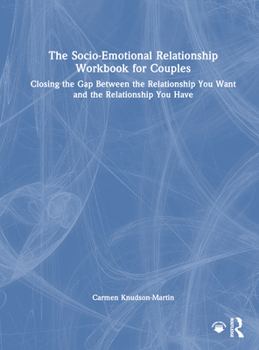The Socio-Emotional Relationship Workbook for Couples: Closing the Gap Between the Relationship You Want and the Relationship You Have
This supportive and empowering guide helps readers identify and build on their relational values, which the dominant culture tends to minimize, inhibit, or disparage.
Written in an engaging, easy to read and use format, this workbook offers clear case examples and activities that readers can apply to their own relationships. The introductory chapter describes the problem--how unrecognized power imbalances in who notices, accommodates, and attends to one another make attaining satisfying, mutually supportive intimate relationships difficult. Chapters 2-5 introduce practices that help readers recognize the connections between their social worlds and how they engage in their relationships, with exercises that facilitate this personal awareness and enable them to share these experiences with their partners. Chapters 6-10 guide readers through assessing reciprocity in their relationships and exercises to apply each of the four components of the Circle of Care (mutual vulnerability, attunement, influence, and relational responsibility) and strategies for maintaining commitment to their relational goals over the long term. In each chapter, exercises are structured to first teach personal socio-emotional awareness, followed by relational practices that facilitate engagement based on mutual attunement and shared commitment rather than debate.
This book views emotion and meaning as the link between individuals and the larger society and helps readers develop awareness of their social contexts and societal power processes that work against relationships.
Related Subjects
Psychology




